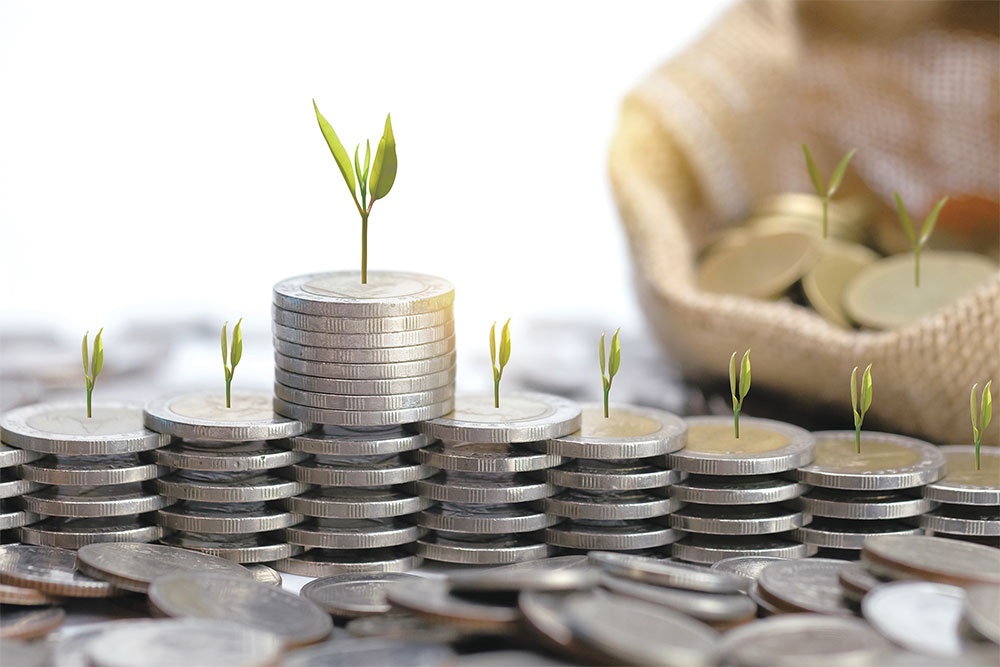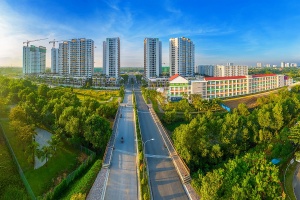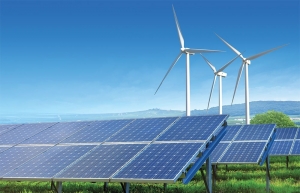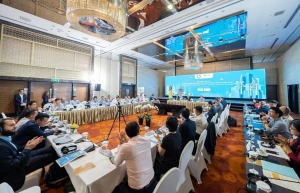Billion-dollar challenge begins to establish a greener Vietnam
The ongoing green transition in Vietnam will further accelerate in 2023 thanks to the Just Energy Transition Partnership (JETP) that was signed at the end of last year between Vietnam and a group of international partners including the United Kingdom, the EU and some of its member states, the United States, Canada, and Japan.
 |
| Billion-dollar challenge begins to establish a greener Vietnam, photo shutterstock |
The signees committed to mobilise $15.5 billion from the public and private sectors within the next 3-5 years to boost the green energy transition.
Vietnam is the third country to deploy a JETP after South Africa and Indonesia, and attraction to foreign investors is expected to increase on the back of the agreement. According to calculations by the Department of Climate Change under the Ministry of Natural Resources and Environment, Vietnam will have about $200 million as non-refundable aid, and the rest will be loans with low interest rates. Both are meant to implement emission reduction plans worth about 500 million tonnes of greenhouse gases until 2035.
However, many analysts said this vision can only materialise in the long term. The shift from using fossil fuels to using renewable energies is planned as an equitable energy transition, with the need to invest in a diversified energy mix, with affordable and safe renewable energy sources.
This process plays a key and decisive role in implementing Vietnam’s commitment to stop carbon emissions by 2050. At the same time, it contributes to ensuring energy security and sustainable development of the electricity sector, as well as job creation.
The implementation of feed-in tariffs (FiTs) for three years helped the power system receive about 17,000MW of solar power by the end of 2020. At the same time, around 4,000MW of wind power were added around a year later. Both energy sources are seen as the foundation for Vietnam to implement emission reduction plans to 2035 according to the commitments in the JETP.
However, one of the greatest obstacles will be to find new capital sources for energy infrastructure and investments in new renewable energy projects, including the development of wind power at sea.
Most significantly, consistent and long-term policies to develop renewable energy sources will be a big challenge, said Nguyen Anh Dung, senior officer of the CASE (Clean, Affordable and Secure Energy for Southeast Asia) project supported by the German government.
“The policy framework on solar power is still unclear,” argued Dung, citing the explosive development of rooftop solar power taking place in 2020. “Nevertheless, the FiT for wind and solar power was successful in raising investment capital, and the periodic adjustments and revisions of the tariff properly reflect the cost reduction in this industry.”
Vietnam is switching to a bidding mechanism for renewable energy projects, which equals adjusting investment flows in the energy sector, according to Dung.
“One of the most notable disadvantages of this form of bidding is the risk that the government will not achieve its set amount of capacity due to the possibility of projects not being implemented. In practice, the failure rate of an auction can be very high, up to 70 per cent,” Dung warned. “The quality of the design of the auction, as well as the level of competition, is crucial to the success of the auction rounds.”
Thus, Vietnam’s policy readiness remains a major bottleneck, which can affect investment flows and benefits from the JETP.
Nguyen Anh Khoa, executive deputy general director of VinaCapital’s Energy Investment Fund, found that financial institutions and commercial banks are often not ready to lend to investment projects in the regenerative energy sector.
“Obstacles in the legal framework, as well as financial and operational capacity, are creating a gap between investment ideas and implementation of many organisations and businesses,” Khoa said. “Investing in renewable energy projects has large capital requirements, long payback periods, and high risks due to weather-dependent capacity and output.”
There are also suggestions to couple financial sources from the JETP with foreign investment and domestic capital flows, which could help offer more choices.
Nguyen Tuan Anh, deputy director of the Electricity and Renewable Energy Department under the Ministry of Industry and Trade (MoIT) suggested, Vietnam needs around $141.59 billion to develop power sources and grids this decade.
“The investment in renewable energy sources should be concretised soon to ensure the implementation of the government’s commitments,” Anh said.
Vietnam has become the leading country in ASEAN in terms of scale and proportion of wind and solar power sources, accounting for 27 per cent of total power capacity, as of the first quarter of 2022, according to the MoIT.
 | Over $15 billion available for Vietnam’s green transition The Just Energy Transition Partnership is a bold initiative by the International Partners Group, including the European Union, the United Kingdom, France, Germany, the United States, Italy, Canada, Japan, Norway and Denmark, to mobilise an initial $15.5 billion of public and private finance over the next three to five years to support Vietnam’s green transition. |
 | Vietnam up to the challenge in hitting net-zero targets At COP27 last month, Vietnam took further action to fulfil its net-zero goals by 2050 through a strong energy transition, which has been putting pressure on long-term energy policy revisions to ensure international commitments. |
 | Just energy transition: a green pathway for sustainable development Vietnam is striving to realise the country’s strong commitment to decarbonisation through a just and sustainable energy transition. |
What the stars mean:
★ Poor ★ ★ Promising ★★★ Good ★★★★ Very good ★★★★★ Exceptional
Related Contents
Latest News
More News
- Trung Nam-Sideros River consortium wins bid for LNG venture (January 30, 2026 | 11:16)
- Vietnam moves towards market-based fuel management with E10 rollout (January 30, 2026 | 11:10)
- Envision Energy, REE Group partner on 128MW wind projects (January 30, 2026 | 10:58)
- Vingroup consults on carbon credits for electric vehicle charging network (January 28, 2026 | 11:04)
- Bac Ai Pumped Storage Hydropower Plant to enter peak construction phase (January 27, 2026 | 08:00)
- ASEAN could scale up sustainable aviation fuel by 2050 (January 24, 2026 | 10:19)
- 64,000 hectares of sea allocated for offshore wind surveys (January 22, 2026 | 20:23)
- EVN secures financing for Quang Trach II LNG power plant (January 17, 2026 | 15:55)
- PC1 teams up with DENZAI on regional wind projects (January 16, 2026 | 21:18)
- Innovation and ESG practices drive green transition in the digital era (January 16, 2026 | 16:51)

 Tag:
Tag:




















 Mobile Version
Mobile Version